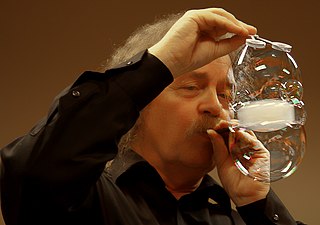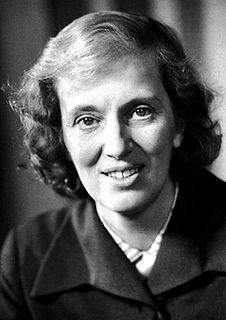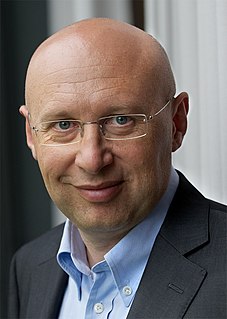A Quote by George Wald
I tell my students to try to know molecules, so well that when they have some question involving molecules, they can ask themselves, What would I do if I were that molecule?
Related Quotes
I have lived much of my life among molecules. They are good company. I tell my students to try to know molecules, so well that when they have some question involving molecules, they can ask themselves, What would I do if I were that molecule? I tell them, Try to feel like a molecule; and if you work hard, who knows? Some day you may get to feel like a big molecule!
Suppose that you could mark the molecules in a glass of water; then pour the contents of the glass into the ocean and stir the latter throughly so as to distribute the marked molecules uniformly throughout the seven seas; if then you took a glass of water anywhere out of the ocean, you would find in it about a hundred of your marked molecules.
Captain John Sheridan: I wish I had your faith in the universe. I just don't see it. Delenn: Then I will tell you a great secret, Captain. Perhaps the greatest of them all. The molecules of your body are the same molecules that make up this station , and the nebula outside, that burn inside the stars themselves. We are starstuff. We are the universe made manifest, trying to figure itself out. And as we have both learned, sometimes the universe requires a change of perspective.
Why are atoms so small? ... Many examples have been devised to bring this fact home to an audience, none of them more impressive than the one used by Lord Kelvin: Suppose that you could mark the molecules in a glass of water, then pour the contents of the glass into the ocean and stir the latter thoroughly so as to distribute the marked molecules uniformly throughout the seven seas; if you then took a glass of water anywhere out of the ocean, you would find in it about a hundred of your marked molecules.
Haemoglobin is a very large molecule by ordinary standards, containing about ten thousand atoms, but the chances are that your haemoglobin and mine are identical, and significantly different from that of a pig or horse. You may be impressed by how much human beings differ from one another, but if you were to look into the fine details of the molecules of which they are constructed, you would be astonished by their similarity.
In order for life to have appeared spontaneously on Earth, there first had to be hundreds of millions of protein molecules of the Ninth Configuration. But, given the size of the planet Earth, do you know how long it would take for just one of these protein molecules to appear by chance? Roughly 10 to the 243rd power, billions of years; and I find that far, far more fantastic than simply believing in a god.
































